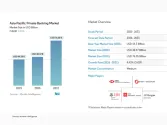
Telcos drive growth in SE Asian data centres
The Philippines and Singapore are doubling their data centre capacity
The data centre industry in South and Southeast Asia will continue to grow over the next few years, driven by the digitalisation of telecommunications and real estate firms in the region.
A report by S&P Global Ratings showed that Malaysia, Indonesia, and India are projected to witness a compound annual growth rate (CAGR) of 10% to 25% in data centre capacity over the next five years, spurring investment and funding opportunities.
This substantial growth can be attributed to shared factors among these countries such as rising online presence, localized content, and a youthful demographic. Enterprises are also digitalising their operations and migrating to the cloud.
In contrast, Singapore is expected to grow at a modest pace as it is a more established market with constraints over land and power supply, according to the report.
Photo from S&P Global Ratings Report
Telcos see DC as growth engine
Telecom firms operating in South and Southeast Asia sees data centre investments as an organic extension of their core business as they are able to leverage their connectivity infrastructure and experience in running capital-intensive enterprises in a regulated environment.
Telcos also have an existing enterprise customer base to tap and to whom they can offer bundled services which could also increase customer stickiness.
In the Philippines, PLDT Inc. is already building its 11th data centre—a 36-megawatt (MW) site in Laguna which will more than double its current 28MW capacity. Singapore Telecommunications Ltd. (Singtel) is also expanding its data centre footprint in Singapore, Indonesia, and Thailand to boost its gross data capacity to 155MW by 2026, from its current capacity of 60MW.
For telco companies, data centres are also part of the solution to offsetting waning growth in other areas such as their traditional voice and mobile businesses, and with the ramp-up of 5G revenue still some time away, data centres may help fill the void.
In the long run, data centres can offer monetization opportunities if telcos plan to recycle their capital and reinvest in other emerging opportunities. Data centres with favorable locations, good network connectivity, and high-capacity utilisation can be valuable and have high price multiples.
“This situation is not unique to South and Southeast Asia. European telcos invested heavily in data centers a decade ago when colocation was booming. Many of them exited the data center market from 2015 to reduce debt and raise funds for core business such as spectrum spending,” the report read.
It cited the PCCW Ltd. from Hong Kong which sold its data centre business in 2021 for $750m, and proceeds of the transaction helped control its leverage.
While data centre investments may not offer the strategic value of 5G to telcos' core operations, larger data capacity benefits these firms by improving network reliability and reducing latency as data consumption grows. It also complements other offerings such as cloud and information and communication technology services.
Risks in data centres
However, there are still risks among telco-operated data centres. According to the report, data centres run by telcos may not be managed independently and may lack a dedicated salesforce, which can result in a lower utilization rate. The facilities are also seldom carrier-neutral and may lack interconnection which is an important competitive advantage for data centres.
The entrance of international and regional data centre providers will also likely disrupt smaller markets that were previously dominated by a few key players, including regional telcos.
With this, global data centre operators and selective regional telcos should build a regional platform as a one-stop solution for hyperscalers and enterprise customers that operate in multiple countries in the region.
“We expect most of the local telcos, such as Telekom Malaysia Bhd., PLDT, and Advanced Info Service Public Co. Ltd. will focus on the domestic market, where they have strong expertise with more measured risks,” the report read.
“Government-related telcos, such as Telekom Malaysia, will also benefit from their strong infrastructure and local presence for setting up secured locations for government and public data,” it added.
The unique position of local telcos in network infrastructure and enterprise customer base will allow them to gain more in the respective local markets.
As telcos continue to be a driving force in the rapidly growing data centre industry, their unique position in network infrastructure and enterprise customer base will allow them to gain more in the respective local markets.










